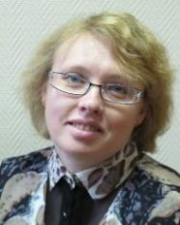A multitude of topics were discussed at the IATEFL 2018 conference. Teaching listening was one of them, the talks on which are going to be summarised in this post. I am extremely grateful to Cambridge Assessment English for giving me an opportunity to develop professionally and enrich both my classroom practice and research background through the scholarship I won from them.
Interestingly enough, there doesn’t seem to be a uniform understanding of how students master this skill. Christine Goh mentions the widespread language classroom practice of teaching listening in the way it is tested. She emphasis that bottom-up (based on sound / word / intonation recognition) and top-down (based on background knowledge) activities should be supplemented by metacognition tasks. It is metacognition, or reflection on your own thinking processes, which make the teaching of listening different from its assessment. Christine suggests a framework for listening comprehension development, the first step of which is schemata (background knowledge) activation, then comes actual listening, then the after-listening stage including monitoring and evaluating your own performance. Extensive listening supplements these out of the classroom.
John Field, however, says that in real-life situations we do not regularly activate schemata before listening (imagine doing research on a topic before listening to a radio programme). His research showed that even at B1 level students do not understand everything they hear. Thus, they have to be taught strategies to compensate for these gaps (along with listening sub-skills and practice for tests). These strategies include, for example, anchoring on key words and making guesses, working out meaning from context and anticipating what’s going to be said. He highlights that students’ problems will be context-specific, therefore, strategies we teach them will differ in each case. Though John Field states his approach is different from what Christine Goh suggests, I find common features in how they understand strategies: students need to reflect on their performance guided by the teacher to identify the obstacles to comprehension and find ways for repair.
What is particularly interesting for me is that John Field finds exam practice completely inauthentic, as in real life we seldom (if ever) have prompts or have to choose the appropriate answer when we listen. Authentic listening was also the focus of a talk given by Sheila Thorn. Sheila creates materials for different levels based exclusively on authentic audio extracts. Traditionally textbooks have graded texts based on certain text models which are miles away from real situations. She introduces the idea of grading tasks, not tests. In addition, she suggests we should do decoding in the classroom, e.g. through streamlining activities, in which students need to transcribe the most challenging extracts containing elision or assimilation. Further exploration may touch upon collocations, colloquialisms or accents. Sheila Thorn applies a similar approach when she designs listening assessment materials.
Robin Walker focussed his talk on independent listening, which is the opposite of interactive listening. An example of independent listening may be listening to a lecture or a presentation. Such features as limited prior knowledge or lack of clarification make it more challenging for learners. He singled out the skills and strategies students need to listen independently, for example, recognition of text structure or note-taking. The most interesting activities for me include “paused” note-taking (when students have a pause to take notes after listening to a short extract, but the length of this pause is gradually reduced) and listening with books closed (read the task → listen with your book closed → open your book and do the task).
All the talks described above gave the listeners both food for thought and practical instruments to use in the classroom. These tools help us actually teach listening differently from assessing it, gradually developing this skill and making it true-to-life.
Svetlana Bogolepova is Associate Professor at the School of Foreign Languages at National Research University Higher School of Economics, Moscow. She holds a Ph.D. in Philology and teaches Speech Practice, EAP and exam classes. EAP, assessment, and materials development lie within her interests. She was the winner of a Cambridge Assessment English scholarship for IATEFL Brighton 2018.

